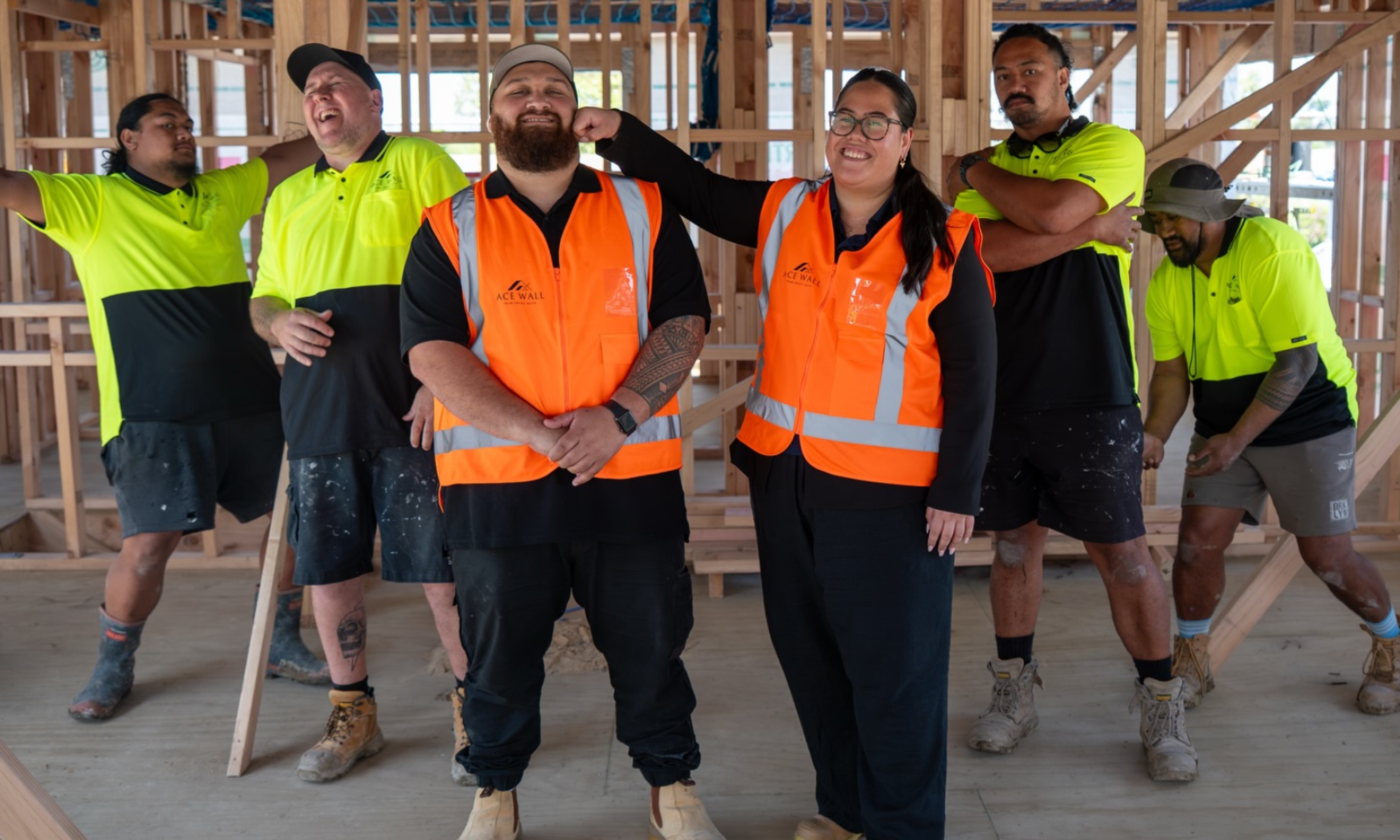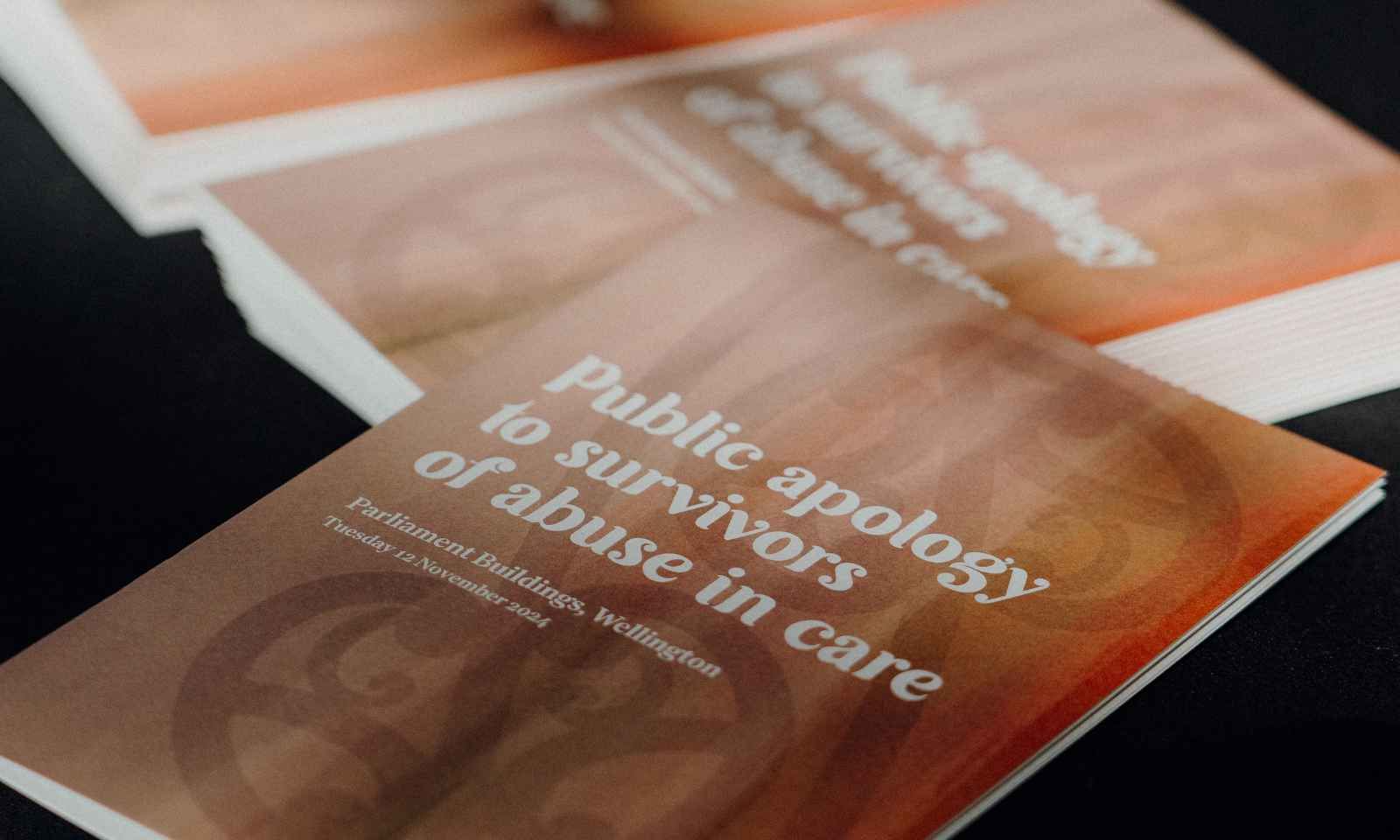

Human Rights Commissioner Julia Whaipooti.
Photo/Human Rights Commission
Advocates warn that selective redress risks repeating state harm
Human Rights Commissioner Julia Whaipooti says proposals to scrutinise survivors with serious convictions undermine calls for open redress.



Naval officers face charges over sinking of HMNZS Manawanui

Realm relations in focus as Tokelau-NZ marks 100-year history

The Sāmoan Tenor named Pati who turned disadvantage into an operatic destiny


Pacific-led building company redesigning the intergenerational housing deficit in NZ

Naval officers face charges over sinking of HMNZS Manawanui

Realm relations in focus as Tokelau-NZ marks 100-year history

The Sāmoan Tenor named Pati who turned disadvantage into an operatic destiny
As calls for a proper and independent redress system grow louder, Pacific communities are urging the Government to address abuse in state care.
Survivors gathered across Aotearoa on 12 November for National Remembrance Day, established following the Government’s formal apology last year in response to the Royal Commission of Inquiry’s findings on state care abuse.
The inquiry revealed extensive physical, emotional, and sexual abuse, along with widespread neglect and systemic failures within state and faith-based institutions. The commission also found that Pacific and Māori survivors experienced disproportionate harm, including racial discrimination and cultural disconnection.
A total of 65 community and survivor-led events were held, supported by a NZ$1 million fund to mark the occasion. Speaking with William Terite on Pacific Mornings, Human Rights Commissioner Julia Whaipooti says the day represents a time “to be reminded that we never forget about this”.
“That it is time to hold the Government to account in acting. I want to talk to all of our whānau and survivors to say that you are believed, you are always loved, and the failures of the state and the abusers to manage that is something that we carry today and every day,” Whaipooti says.
The Government recently introduced selective redress measures through the Redress System for Abuse in Care Bill, which has passed its first reading. The Bill proposes a new framework where financial payments to survivors who have committed certain serious sexual or violent offences and received sentences of more than five years will undergo independent review instead of being granted automatically.

Lead Co-ordination Minister for the Crown Response, Erica Stanford. Photo/RNZ/Mark Papalii
Lead Co-ordination Minister for the Crown Response, Erica Stanford, acknowledges there will be “strong and diverse views” about the proposed additional scrutiny. She says that the approach is based on the Australian model and does not automatically exclude survivors from receiving financial redress.
“However, it does require that the independent decision maker satisfy themselves that making such a payment would not bring the scheme into disrepute. This recognises that there are a small number of survivors who were abused in care have also gone on to perpetuate harm to others,” Stanford says.
Whaipooti says the focus must now centre on survivors receiving meaningful redress. She says the suggestion that some survivors could be excluded from redress because of past offending is “wholly inappropriate”.
Watch Julia Whaipooti’s full interview below.
“Human rights don't stop at the door of prisons, mental health institutions, or humanity. It's something we wholly disagree with from a human rights perspective, but also that the ultimate offender and abuser in this process is the state. It is the state administering who gets redress, who is entitled to that,” Whaipooti says.
“It shouldn't be left to the abuser to identify who is a worthy survivor. The umbilical cord of abuse, we know that the majority of whānau who ended up in gangs, which is a large proportion of Māori and Pacific people within gang whānau.
“The gangs were inherently created by state abuse and violence and neglect of our children and young people, and how they were managed and treated. So the state does not get to continue its abuse by deciding who the people that they've abused are worthy of being acknowledged and recognised for that.”

Pacific and Maori survivors reportedly experienced higher levels of physical abuse than other ethnicities. Photo/Ala Vailala
The Royal Commission recommended that redress be available to all survivors, including those in prison or with a criminal record. The commission stressed that survivors should not be penalised for criminal convictions that often stem from the abuse they experienced as children.
In a formal survivor contribution prepared for the Government’s public apology last year, survivor Fa’afete Taito emphasised the most important expectation that redress should ensure “an outcome that will keep our mokopuna safe from any further harm”.
Whaipooti is concerned that implementing only a small portion of the inquiry’s findings undermines survivors’ trust. She says less than 10 per cent of the commission’s recommendations have been implemented, suggesting that survivors are still not being heard.
The Government says the reforms respond to the Royal Commission’s findings and a NZ$774 million Budget 2025 investment in the care and redress system. But opposition parties say the move is deeply flawed.
Speaking to RNZ, Labour mp Willow-Jean Prime describes the legislation as “morally bereft” and “cynical”, while Green Party MP Hūhana Lyndon says it betrays the Royal Commission’s intent and mana.
“So for us, it's what we can do within our own communities, hapū, aiga, whānau, to make spaces to make sure we are preventing abuse from occurring and also how are we holding the government and the church institutions to account for the harm that they have done.
“For those of us, and for us as the Human Rights Commission, we have a role to continue to push these to the Crown and say, ‘these are the grossest human rights abuses this country has ever seen. You must act now’.”
The Redress System for Abuse in Care Bill is now before the Social Services and Community Select Committee for a five-month review period, with submissions to the select committee remaining open until 26 November.